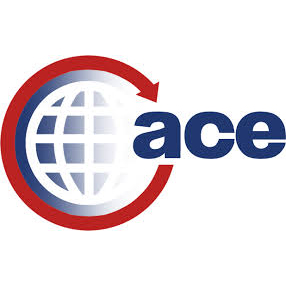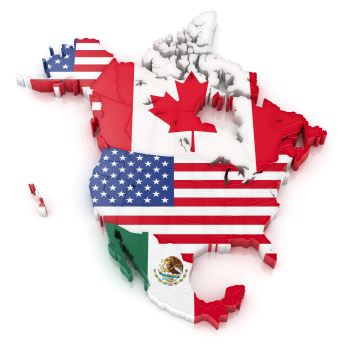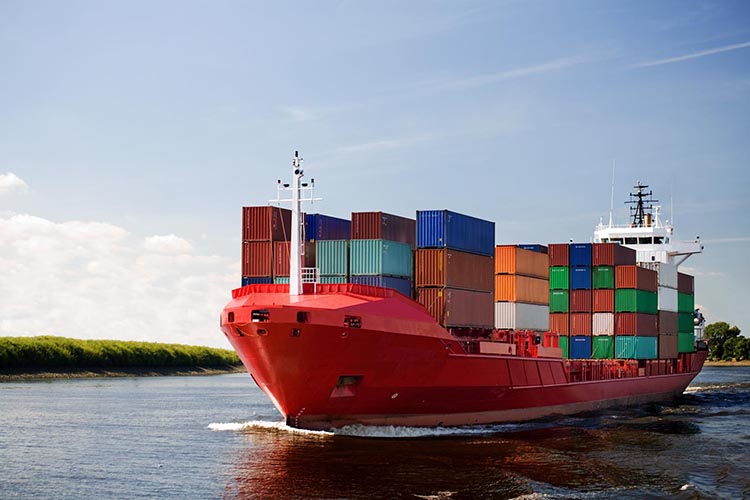
FTZ’ine September 2019
September 5, 2019
FTZ’ine November 2019
October 31, 2019Trade Takes A Back Seat
At the beginning of last month, trade was on the tip of everyone’s tongue in your Nations’ Capital. Fresh negotiations were getting traction with Japan and India, and the world was looking forward to the possibility of reduced tensions coming out of the meeting of world leaders at the United Nations General Assembly in New York.
That all changed with one phone call.
One phone call by the President of the United States that is. Now impeachment proceedings are the talk of the town and prospects for significant movement on major trade initiatives such as USMCA and China seem slim. Even the specter of war with Iran did little to change the narrative over the President’s contact with Ukraine and subsequent handling of call transcripts. Impeachment talk is likely to end any prospect of forward progress in talks with China, so zones had best prepare for the status quo to stay just that. See below for ways operators should prepare for CBP’s review of their status changes brought on by the recent trade remedies that look to remain in effect for the foreseeable future.

Top Story: New Free Trade Agreement Has Major Impact on FTZs
Tech Tip
Having trouble filing your Post Summary Corrections (PSCs) to take advantage of exclusions for the 301 tariffs on entries past the liquidation date? Successful filing depends upon the entry being given an “Importer Extension” and not a “Customs Extension”.
Ask CBP to apply an Extension Code of 50 for “Importer Extension” to prevent rejections due to the filing being under CBP control.


CBP Announces Audit Requirements For Zone Status Changes
It looks as though the Section 301 tariffs on Chinese imports are going to be around a lot longer than anyone expected. This, along with the 232 tariffs on steel and aluminum and other potential actions on the horizon, have led to a complicated, and sometimes confusing, situation with zone statuses of admitted merchandise. And CBP is paying attention to zone status elections in much more detail as a result.
There have been varying PF status requirements associated with the multiple additional tariffs implemented on a regular basis. For some, the PF status requirement was retroactive, including all on-hand merchandise regardless of time of admission. For others, PF status must be elected upon admission to the zone.
As a result, many zones find themselves frequently using a quirky procedure to change the zone status of on-hand inventory from NPF to PF, either because it is mandated by the additional tariff or because there is a duty advantage to such action. Suddenly, zones are faced with filing status changes at a moment’s notice with timing and date reference being the key to locking in savings or preventing unwanted duty liability.
With this increased status activity in FTZs, CBP is intensifying scrutiny of all filings that include Chapter 99 tariffs. Maybe you’ve had an import specialist question an entry with 301 duties, or maybe you’ve tried to file Post Summary Corrections (PSCs) to correct duty calculations for such goods and faced a litany of questions about your PF status elections.
Jim Swanson, CBP’s Director of Cargo Security and Control, recently stated there is no intent to have zones redo the work they've already done for status changes. However, all administrators must have clear records and be able to trace the process of status changes through record keeping and inventory procedures.
Want to be sure you’re ready for CBP’s next spot check? ISCM provides thorough Audit Compliance Review for FTZs including:
• Records Review – Walk through of maintained records as well as recordkeeping procedures
• ICRS System Report Review – Review of filed submissions and synchronization with operation management systems
• Physical Security Review – Assessment of current security, patterned after the CBP Security Review
• FTZ Process/Procedure Review – Investigation of physical processes to procedural documentation for primary FTZ functions and reporting
• Trade Compliance Review – Examination of supporting procedures such as training, FTA management, and Classification in relation to zone activity.
Email us today to find out how we can help you be prepared when CBP visits your zone.
Brexit Continues to Baffle FTZs


New Focus In DC Likely Dooms USMCA Before 2021

FTZ Board Activity
- Patterson Pump Company submitted a Notification of Proposed Production Activity for specialty pumps in a new subzone of FTZ 26 in Toccoa, Georgia. MORE
- HP International Trading B.V. LLC received approval to operate its facility in Aguadilla, Puerto Rico as Subzone 61V. MORE
- Puerto Rico Wood Treating Industries, Inc. received approval to operate its facility in Carolina, Puerto Rico as Subzone 61W. MORE
- Hitachi Automotive Systems Americas, Inc. received authorization of production activity for additional automotive components within Subzone 29F in Harrodsburg and Berea, Kentucky. MORE
- Merck & Co., Inc. received authorization of production activity for pharmaceuticals within FTZ 185 in Elkton, Virginia. MORE
- Lasko Products, LLC submitted a Notification of Proposed Production Activity for small consumer appliances including fans, heaters, and humidifiers within a new site of FTZ 78 in Franklin, Tennessee. MORE
- Coreworks, LLC received authorization of production activity for brazed aluminum heat exchangers and cryogenic equipment within FTZ 84 in Katy, Texas. MORE
- LLFlex, LLC received authorization of production activity for aluminum and steel cable wraps within FTZ 29 in Louisville, Kentucky. MORE
- Stihl, Incorporated received authorization of production activity for additional components for outdoor power equipment within FTZ 20 in Norfolk, Virginia. MORE
- Gulfstream Aerospace Corporation submitted a Notification of Proposed Production Activity for disassembly of additional aircraft components within Subzone 168E in Dallas, Texas. MORE
- The City of Conroe submitted an application to add additional acreage to the ASF service area of Foreign-Trade Zone 265 in Conroe, Texas. MORE
- Patterson Pump Company submitted an application for subzone status for its facility within FTZ 26 in Toccoa, Georgia. MORE
- Benteler Steel/Tube Manufacturing Corp. submitted a Notification of Proposed Production Activity for seamless quality steel tubes within FTZ 145 in Shreveport, Louisiana. MORE
- South Florida Lumber Company submitted a Notification of Proposed Production Activity for steel frames within FTZ 281 in Medley, Florida. MORE
- Abbott Laboratories received approval to expand Subzone 22F in Elk Grove Village, Illinois. MORE
- Bristol-Myers Squibb Holdings Pharma, Ltd. received authorization of production activity for pharmaceuticals within FTZ 7 in Mayaguez, Puerto Rico. MORE
- MVP International Group, Inc. received authorization of production activity for candles, reed diffusers, and wax melts within FTZ 230 in Elkin and Boonville, North Carolina. MORE
- United Furniture Industries, Inc. submitted an application for subzone status for its facilites within FTZ 158 in Nettleton and Amory, Mississippi. MORE
- Hitachi Automotive Systems America, Inc. submitted an application for the expansion of Subzone 29F in Louisville, Kentucky. MORE
- DENSO Manufacturing Michigan, Inc. submitted a Notification of Proposed Production Activity for automotive HVAC and engine cooling products within FTZ 43 in Battle Creek, Michigan. MORE
- Northern Mississippi FTZ, Inc. submitted an application for reorganization of FTZ 262 under the alternative site framework in Southaven, Mississippi. MORE
- Pueblo, Inc. submitted an application for subzone status for its facility within FTZ 61 in Guaynabo, Puerto Rico. MORE
At the beginning of last month, trade was on the tip of everyone’s tongue in your Nations’ Capital. Fresh negotiations were getting traction with Japan and India, and the world was looking forward to the possibility of reduced tensions coming out of the meeting of world leaders at the United Nations General Assembly in New York.
That all changed with one phone call.
One phone call by the President of the United States that is. Now impeachment proceedings are the talk of the town and prospects for significant movement on major trade initiatives such as USMCA and China seem slim. Even the specter of war with Iran did little to change the narrative over the President’s contact with Ukraine and subsequent handling of call transcripts. Impeachment talk is likely to end any prospect of forward progress in talks with China, so zones had best prepare for the status quo to stay just that. See below for ways operators should prepare for CBP’s review of their status changes brought on by the recent trade remedies that look to remain in effect for the foreseeable future.

